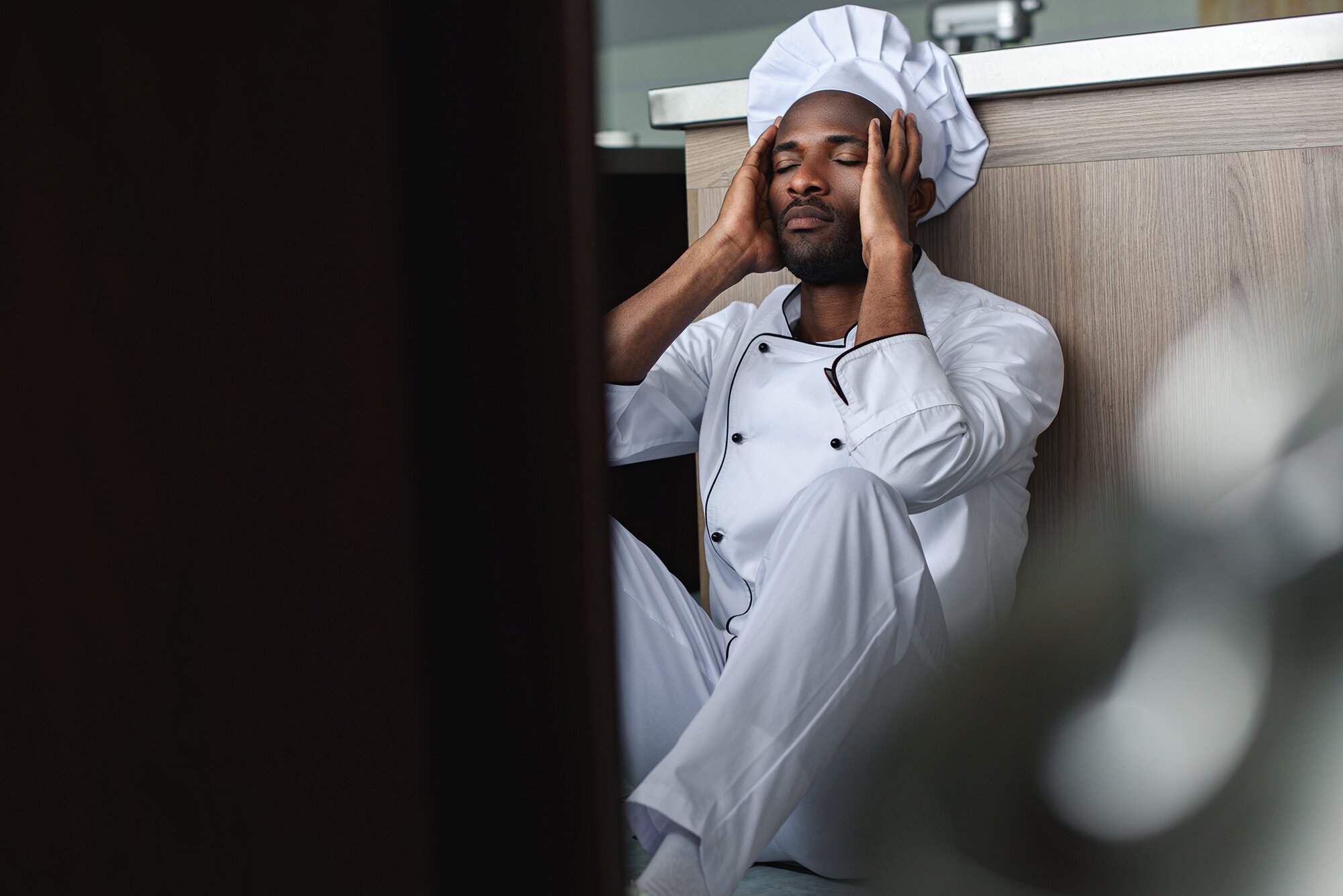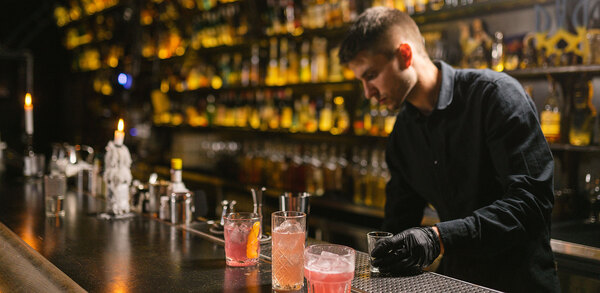Making fine food fair: top chefs on leadership in kitchens
What makes a good kitchen, in all senses? In our third feature in partnership with the #FairKitchens’ campaign, David Harris asks some of the UK’s best chefs about leadership.
How do you lead a kitchen well? Not violently, nor shoutily, according to chefs who have both cooked well and managed staff respectfully. But when does a tough kitchen become an unfair one, or a demanding chef become unreasonable?
The answer is not easy, but most chefs know when a line has been crossed. Those running kitchens need “balance”, advises Shaun Hill, the veteran chef now cooking at the Michelin-starred Walnut Tree Inn near Abergavenny. This ensures the coexistence of high cooking standards and respectful staff management (see below).
Good leaders tread a delicate line, but that line is vital. There is nothing wrong with demanding high standards, but do not bully.
Nor is it solely about the food. Adrian Vigus-Brown, head chef at the African Pride Irene Country Lodge in Pretoria, South Africa, says: “As leaders, we’re coming out of just being chefs into leading brigades and leading teams. These days you’re not just the chef – you play so many roles, from HR to coach, and you’re also the soul of the team. Getting the leadership right is key to the success of your operation.”
That is true in small kitchens as well as large. Roberta Hall-McCarron, a serial finalist in BBC’s Great British Menu and chef-patron at the Little Chartroom in Edinburgh, emphasises teamwork. She is in charge of her kitchen but she doesn’t believe in being dictatorial. No shouting – for her or anybody else – is a non-negotiable rule (see below).
Others agree. Ruth Hansom, head chef at London’s Princess of Shoreditch, says: “You don’t always need to be right. As a young head chef I’m very open to my staff’s ideas and give them the flexibility to try new things. I have a great team of chefs, all with their own unique experiences – allowing them to share is really helpful. It’s about listening and giving them the opportunity to contribute, rather than dictating that things must be a certain way. I’m also very honest about the fact that I’m not always right.”
It’s about listening and giving them the opportunity to contribute, rather than dictating that things must be a certain way
Jude Kereama, a New Zealander who has made his home in Cornwall, now runs Kota and Kota Kai restaurants in Porthleven. He has experienced his fair share of unpleasantness in kitchens, including one incident when he was literally (and painfully) kicked hard in the backside by a head chef for making a mistake with his prep work. He says he vowed then that when he was running a kitchen such things would never happen – and they don’t.
He says: “We all make mistakes and I decided a long time ago, when I first became a sous chef, that I wanted to motivate people positively. You can achieve much more by encouraging and helping people than you can by abusing them (see below).”
You can achieve much more by encouraging and helping people than you can by abusing them
Another leading light in Cornwall, Guy Owen, executive chef at the St Enodoc hotel in Rock, agrees. He says: “It used to be about breaking people in order to pull them up. We have got no time for that sort of thing. We try to see the best in people – everybody is a human being and everybody in my kitchen is passionate about what they do.”
A simple thank you goes a long way, too, adds Owen. Recently his whole team were brought together, thanked for their work and each presented with a new chef’s jacket: small respectful gestures matter.
So does pay, of course. Long hours have always been an issue for hospitality workers and many kitchens are now trying to get that under control. At the St Enodoc, all chefs have a 50-hour contract and they are paid at an hourly rate for any overtime.
Owen says: “It helps us to monitor finances and check staff aren’t working too much. We are always trying to reduce hours.”
It’s all a big change from a decade ago – perhaps even from five or six years ago – and for many kitchens such policies are transforming the industry.
Kimberly Brock Brown on the value of leadership

Chef Kimberly Brock Brown, president of the American Culinary Federation (ACF) and contributor to the #FairKitchens ‘Leading a Fair Kitchen’ training series
“If you’re in a position of leadership, cultivating open communication among your team is vital. The best leaders don’t simply talk and instruct; they listen and respond. Early on in my cheffing career, I definitely didn’t always feel heard as part of a team. It’s something that has really influenced my style of management. I want to be heard and I want other people to be heard in turn.
“As a leader, it’s important to pass down your knowledge and get the younger generation involved and excited about the industry. Mentoring wasn’t really a word when I came through culinary school in the 1980s. I also didn’t really have any women to look up to back then, but it’s a big part of what I do now. At ACF we have over 170 chapters and I want every chapter president and their chapter to have a mentee.
“We all have to speak up and step up, but we also have to be given the opportunity to do so. By giving people that opportunity, helping them to stretch and grow and learn while doing the same thing yourself, that’s going to help you become a better leader.”
Shaun Hill
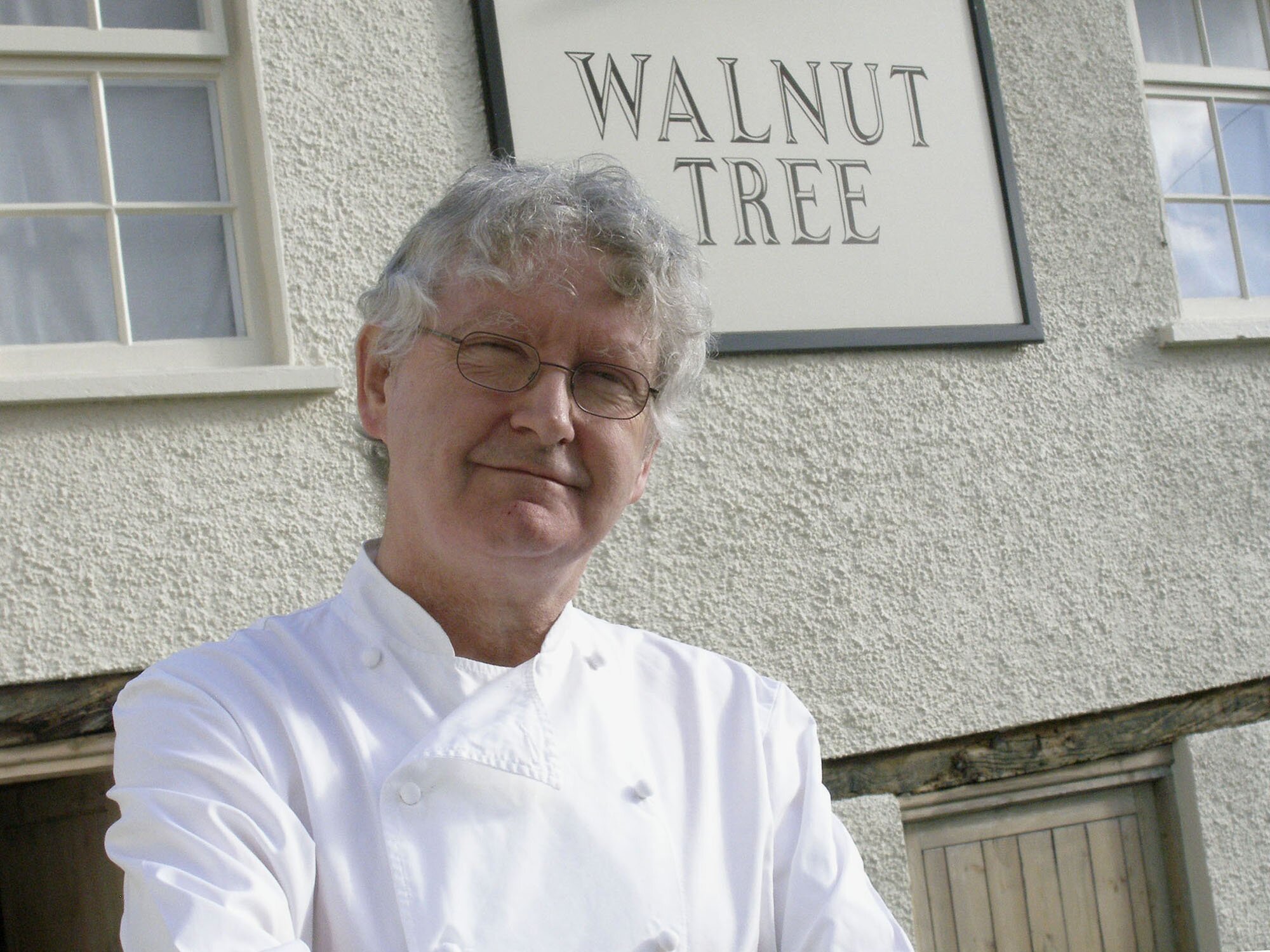
Few are better placed to give the long view on running a fine dining kitchen while treating your staff fairly than Shaun Hill, who is still at the stoves of Abergavenny’s Walnut Tree Inn when many would have hung up their whites.
Now 74, Hill has been working in fine dining kitchens for nearly 50 years. He has held Michelin stars at Gidleigh Park in Devon, the Merchant House in Ludlow and now at the Walnut Tree. He also has a reputation as a thoroughly nice man.
His attitude to running a kitchen that produces good food, but is also fair with its staff, is straightforward – it’s about balance.
He says: “I’ve been through hard kitchens that were phenomenal and where the standards were much higher than the wages paid. But I’ve been lucky to have never been in the kitchen with a bully.”
What he has been in, he admits, are kitchens that demand hard work, concentration and commitment. But he adds that fine dining is hard to do and you need to be committed.
Hill says: “You go to top places to learn and you expect it to be hard. But people shouldn’t be loud, rude or shouty. You have to come round to the idea that the ambitious end of the trade is tougher for lots of reasons – and what you do carries the name of the chef you are working for. It should be no surprise they don’t want to let food go out to customers that is not how they want it to be. Doing things to a high standard is tougher than doing them to a medium standard. It’s a choice you make when you go to a place that does things particularly well.”
Just what that means becomes clearer when you hear Hill talk about those he has heard complaining about other chefs that he admires.
He says: “I used to hear people complain about how hard it was working for Pierre Koffmann, Gordon Ramsay, even Raymond Blanc. What did they expect when they went to work there?”
The point – and the balance – is clear: working in a top kitchen will never be easy, but no kitchen, as Hill puts it, “should be a place for people with serious attitude problems”.
Jude Kereama
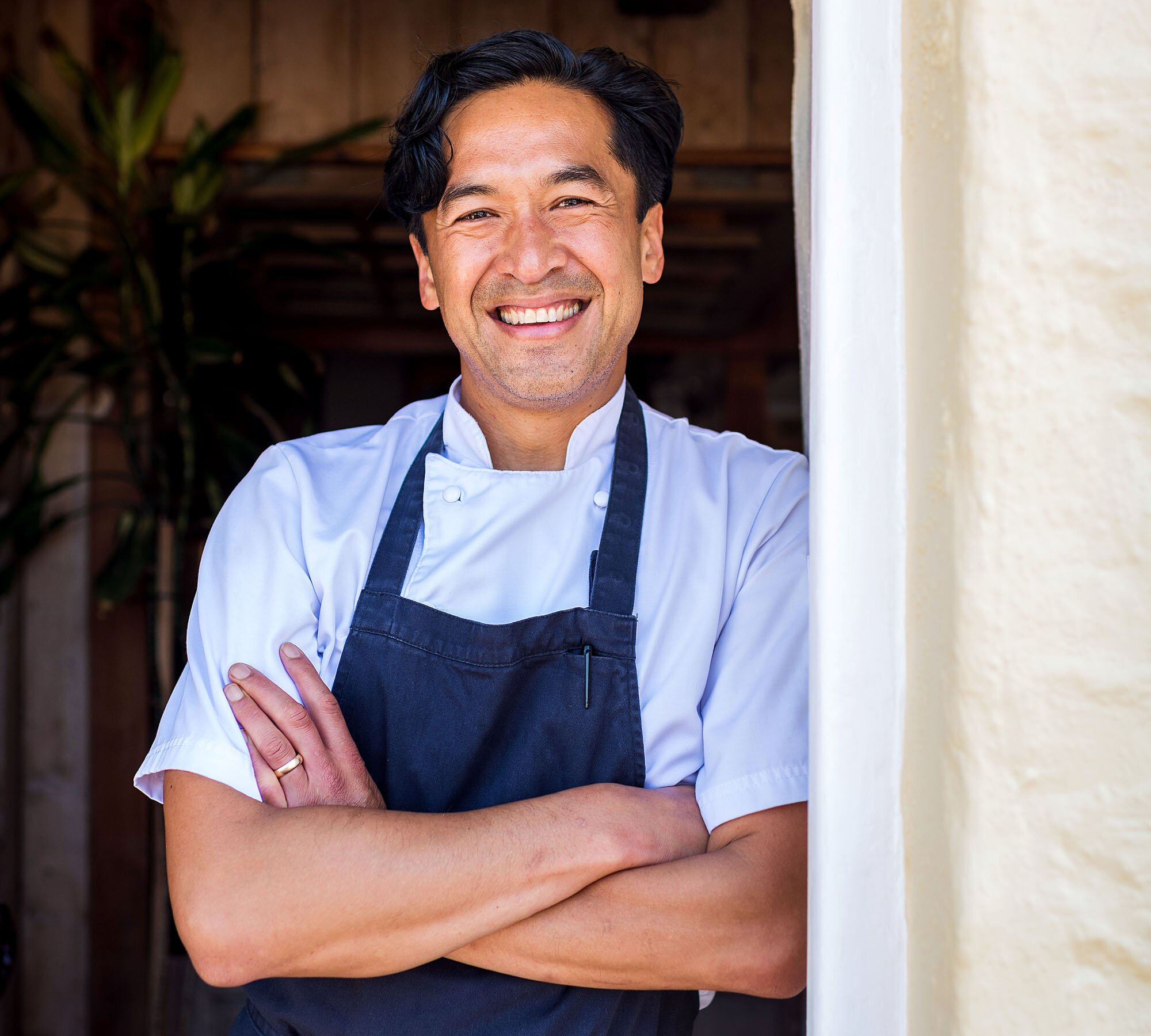
Jude Kereama likes to create a family atmosphere in his kitchens, which include those at Kota and Kota Kai restaurants, both in Cornwall’s Porthleven, and says his aim is to keep them professional but relaxed.
He says: “I like people to be chilled in the kitchen, which is a bit how I am myself, so we don’t really stress out a lot. One thing we always try to do is to prep really carefully, so service doesn’t need to be stressed. It’s partly about being organised, partly about having the right attitude.”
For Kereama “there is no room any more for angry chefs” and he is blunt about how things have changed.
He says: “Their reign of terror is over. The new generation simply won’t work for angry chefs. That’s not to say you don’t need discipline, but you don’t get that by humiliating and abusing people. It’s about teamwork and a common goal.”
Recruitment is crucial in Kereama’s kitchens. As well as looking for chefs who can cook with the right attitude, he also – and just as importantly – looks for nice people.
He says: “You can teach people to cook as you want them to, but you can’t teach them to be nice people. I want people who are affable, easy to get on with and communicative.”
Kereama believes another factor that helps his kitchens is that he recruits a lot of local chefs.
He says: “It works well. I’ve got chefs who have been with me for 10 years and each year we take on a couple of local apprentices. We have one guy who is not from Cornwall, but he’s married to Cornish girl, so that makes him local in my book. It all helps to create the family feel I want in the kitchen.”
Roberta Hall-McCarron
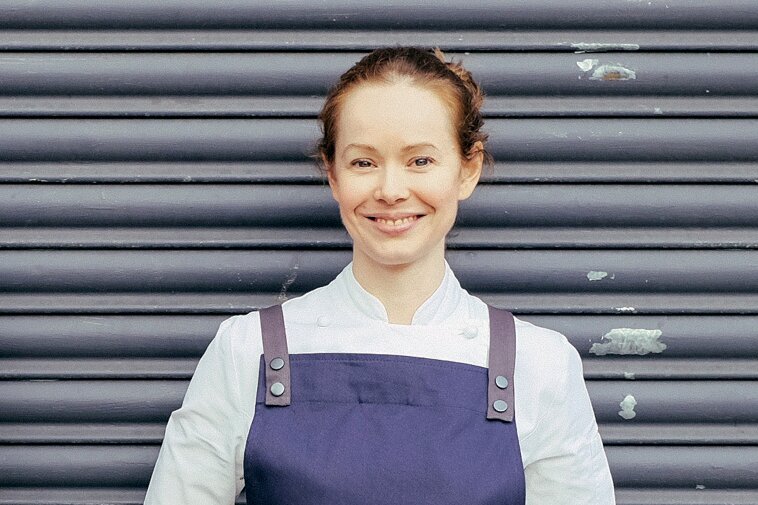
Roberta Hall-McCarron had a varied career before she set up the Little Chartroom in Edinburgh, which she runs with her husband Shaun, who is in charge of front of house.
She has worked in restaurants, a pub and even a bakery and says she feels fortunate to have always been “treated fairly well”, even when she was the only woman in the kitchen.
“I’ve worked in tough kitchens, but I’ve never felt victimised,” she says.
Her restaurant, which previously had just 18 covers, is this month moving to a slightly larger site 10 minutes from its former location.
Hall-McCarron is passionate about running a kitchen with no “attitudes”, where “everyone is on even ground”. But she does have a few absolute rules and one of them is no shouting.
She says: “Nobody shouts. I don’t shout. And I wouldn’t tolerate anybody shouting.”
Her small kitchen team of six (including three female chefs) instead prioritise getting on well with each other.
She says: “That is really important. You have to have a team that is on the same wavelength, to fit in. We discuss everything together and that is good for everybody.”
This means that whenever new menus or dishes are planned, everybody is involved and contributes to those plans.
She says: “It’s really valuable to have everybody’s input. I’d be a fool to ignore that.”



